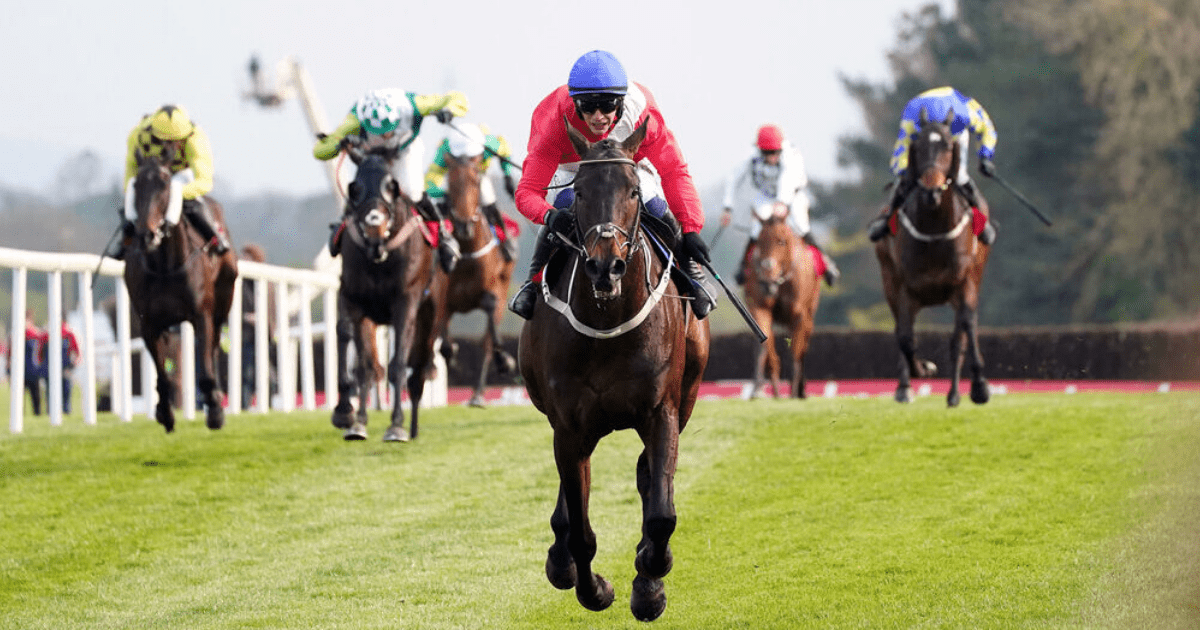Thurles Card Offers Punting Clues Ahead of Cheltenham Festival
Get ready for some thrilling horse racing action as the Cheltenham Festival approaches. This Sunday's card at Thurles Racecourse is set to showcase some potential stars for the prestigious event. Leading the pack is Ryanair favorite Allaho, who will be looking to build on his impressive third-place finish in the King George. With Ascot and Haydock potentially cancelled on Saturday, punters will be eager for some top-notch racing at Thurles.
Allaho to Face Tough Competition in Horse & Jockey Hotel Chase
Attention will be focused on the Grade 2 Horse & Jockey Hotel Chase, where Allaho will test his mettle against rivals Envoi Allen and Appreciate It. Priced at 3-1, Allaho is the favorite for the 2m4f chase. However, Joseph O'Brien's Banbridge (5-1) and Paul Nicholls' Stage Star (7-1) are formidable opponents. Envoi Allen (9-1), owned by Cheveley Park Stud, will also be one to watch after a close defeat in November's Ladbrokes Champion Chase.
High Class Hero Aims to Shine in Novice Hurdle
In the 2m7f novice hurdle, all eyes will be on Willie Mullins' Albert Bartlett hopeful, High Class Hero. Undefeated under rules, High Class Hero will be aiming to make a mark in this race. Currently priced at 12-1, he is the second favorite for the festival novice hurdle, with Readin Tommy Wrong (8-1) leading the pack after winning Lawlor's of Naas.
Remember to gamble responsibly.
Frequently Asked Questions
Is there a need for a specific shoe on a racing horse?
Racing plates are typically lighter and thinner compared to regular horseshoes. These plates provide the necessary traction on the racetrack while minimizing weight. A farrier skilled in working with racehorses will carefully select and fit these shoes to match each horse’s hoof conformation and the specific racing surface they will be running on.
How can you maintain the mental health of a racehorse?
It is equally important to maintain a racehorse’s psychological health as it is its physical fitness. The psychological health of racehorses is influenced by a variety of routines, regular turnout in pastures, mental stimulation and patient, gentle handling. By ensuring the horse is socialized with other horses in a stable, calm environment, you can prevent stress and behavioral problems.
Can you train your racehorse anywhere?
While initial training on a variety tracks is possible, specific race preparation often requires facilities to simulate the conditions a horse will encounter in competition. This can include tracks of the right size with the exact same type and surface that the horse will race upon. This helps to condition horses and allows them to become familiar with that specific racing environment.
How important is a horse’s pedigree when it comes to winning races?
The pedigree of a racing horse can indicate its potential, but it isn’t the only thing that determines their success. A horse’s lineage may suggest an inherited aptitude for speed or endurance, but training, health, and temperament are also influential factors. Training can enhance a horse’s natural abilities, and allow it to perform better than horses with more impressive pedigrees.
What is the first training step for a racehorse?
During the first phase of racing a horse, there is a critical “breaking” stage where the horses become accustomed with a saddle, bridle or the weight from a rider. During these sessions, patience is key to ensuring the horse feels comfortable around humans and with the equipment they will use throughout their racing career.
What health precautions are necessary when training a racehorse?
Meticulous attention to a racehorse’s health is vital in preventing injury and illness. Regular veterinary check-ups, vaccinations, dental care, and proper hoof management are essential. Monitoring the horse’s signs of fatigue, discomfort or strain is equally important. Implementing a well-thought-out training regimen that allows for gradual progression in intensity can help minimize the risk of musculoskeletal injuries.
Statistics
- The average racehorse reaches its peak physical ability between the ages of four to five, with some variation based on the breed and individual development.
- Racehorse mortality rates during racing have been observed to be between 1.5 to 2 deaths per thousand starts, depending on the racing jurisdiction.
- An extensive survey indicated that over 90% of racehorse trainers utilize swimming as a low-impact exercise in their conditioning routines.
- Around 80% of thoroughbred racehorses begin their racing careers by the age of two, according to industry estimates.
- Research has found that a racehorse’s stride length can increase by up to 7% following specific strength and conditioning programs.
- Approximately 70% of a racehorse’s diet consists of forage, with the remainder made up of grains and supplements to meet their high-calorie needs.
External Links
grayson-jockeyclub.org
thoroughbred-racing.net
bloodhorse.com
equibase.com
britishhorseracing.com
horseracing.com
How To
How to Prepare Your Racehorse For a Specific Track Surface
Acclimate your racehorse slowly to the track surface you have chosen by incorporating training sessions on it. When transitioning to synthetic tracks, you can introduce your horse to the new texture and feel through multiple training sessions. It allows the horse to adapt and develop appropriate muscle groups. You should always monitor the horse’s comfort, response and level of comfort when he is on a different surface.

